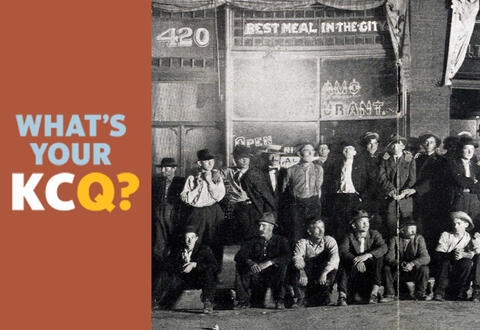All Library locations will be closed Monday, February 16 for Presidents Day.

What's Your KCQ? What do you want to know about our community? The Library and The Kansas City Star combine resources to find answers to questions about regional topics.
Often historical maps raise as many questions as they answer.
A local history researcher recently saw an interesting detail on a 1935 geological survey and asked KCQ: “On a 1930s map, I noticed a Federal Transient Camp located just west of where Shoal Creek entered the old River Bend area of the Missouri River. I assume this was a Depression-era camp similar to the one [where] the Joads camped in The Grapes of Wrath. I haven't been able to find any information regarding this camp. Can you provide any background?”
The Kansas City transient camp was indeed a product of the Great Depression. It was one of roughly 200 camps operated by the Federal Transient Service (FTS). This short-lived and often-overlooked New Deal agency provided relief to the millions of unemployed and unhoused Americans.
In some ways the FTS camps were precursors to those depicted in The Grapes of Wrath, yet by the time John Steinbeck began writing about Dust Bowl refugees in California, the FTS had been dismantled, and those it served had largely been abandoned.
The idea for a transient camp arose locally in 1933, during the fourth and arguably worst year of the Depression. Nearly a quarter of all Americans were unemployed and some 2 million were homeless. Many, like Steinbeck’s Joad family, took to wandering the country in search of work.
Read the rest of the story at KCHistory.org.